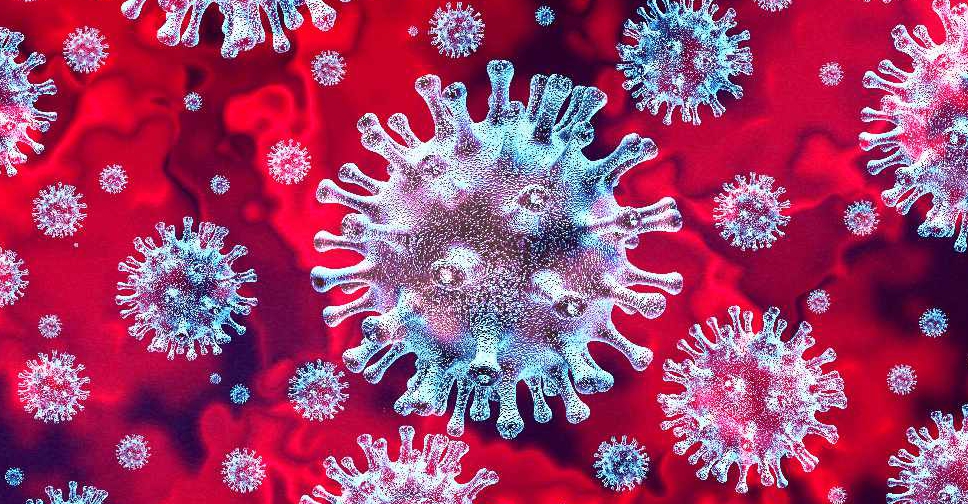
Smart Dubai and the Mohammed Bin Rashid University of Medicine and Health Sciences (MBRU) have developed a novel epidemiological prototype to predict the spread of the COVID-19 virus.
It's a specialised compartmental version of the Susceptible-Exposed-Infected-Removed SEIR framework, widely used in epidemiology, or studies related to the branch of medicine dealing with the incidence, distribution and control of diseases.
This can mathematically map the spread of infectious viruses with incubation periods.
The SEIR is generally considered generic and unable to capture the unique nature of a novel viral pandemic, such as COVID-19.
But researchers at Smart Dubai and MBRU have developed and tested a specialised prototype called the Susceptible-Exposed-Asymptomatic-Hospitalised-Isolated-Removed (SEAHIR) model with an improved ability to capture the unique dynamics of the pandemic.
The work was recently published in the International Journal of Environmental Research and Public Health in a special issue called Infectious Disease Modeling in the Era of Complex Data.
The new model can forecast healthcare requirements through a very detailed framework.
It also takes into consideration the impact of non-pharmaceutical interventions, such as physical distancing, and different testing strategies on the number of confirmed cases.
Smart Dubai had first used the model in its Smart Control Dashboard COVID-19, developed in partnership with Dubai’s COVID-19 Command and Control Center, to monitor and predict the spread of the novel coronavirus.
The case study optimised the main parameters of the model and benchmarked it against the historical number of cases.
The SEAHIR model was used by Dubai’s COVID-19 Command and Control Centre to make timely measures on developing testing strategies, increasing healthcare capacity, and implementing interventions to contain the spread of the virus.
The novel six-compartment SEAHIR model could be utilised and extended by decision-makers and researchers in other countries for current or future pandemics.
"This paper is a significant accomplishment as it outlines our data-driven approach to addressing the COVID-19 pandemic, with a special focus on the UAE and Dubai," said Younus Al Nasser, Assistant Director General of Smart Dubai and CEO of the Dubai Data Establishment.
"We, at Smart Dubai, have always believed data to be an exceptionally effective instrument for calculated decision-making," He added. "Our approach to handling the pandemic and its repercussions echoed our tactics to drive Dubai’s digital transformation and sustainable development, where we consistently rely on accurate data when planning Dubai’s transformation into the happiest smart city of the future."
Dr. Amer Sharif, Vice Chancellor, MBRU, and Head of the Dubai COVID-19 Command and Control Centre said MBRU emphasised the university’s ethos of giving back to the community and its role as a hub of impactful research activity in the UAE.
"Collaboration and sharing of knowledge, is key to ending the global pandemic. MBRU is committed to leading the way and it is a matter of immense pride that our university has made a notable contribution in shaping Dubai’s response to the pandemic, one that is governed by science and driven by data," he said.
#دبي الذكية تطوّر بالتعاون مع جامعة محمد بن راشد للطب والعلوم الصحية نموذجا وبائيا جديدا للتنبؤ بانتشار فيروس كورونا المستجد. يعد النموذج الجديد تصورا متطورا ومتخصصا لنموذج SEIR (سرعة التأثر - التعرض - الإصابة - التعافي)، المستخدم بشكل واسع في علم الأوبئة.https://t.co/BMpCDBrcre
— Dubai Media Office (@DXBMediaOffice) May 2, 2021




 UAE says companies under US sanctions not operating in country
UAE says companies under US sanctions not operating in country
 Dubai Police arrests 222 beggars during Ramadan, Eid
Dubai Police arrests 222 beggars during Ramadan, Eid
 Dubai rolls out variable parking rates
Dubai rolls out variable parking rates
 Watch: UAE search, rescue team continues relief efforts in Myanmar
Watch: UAE search, rescue team continues relief efforts in Myanmar


